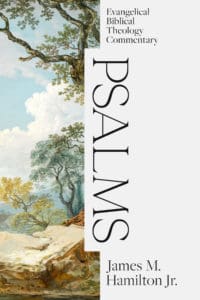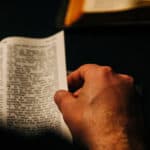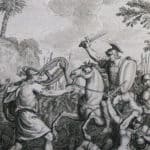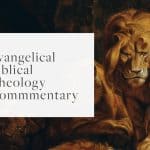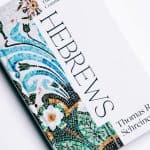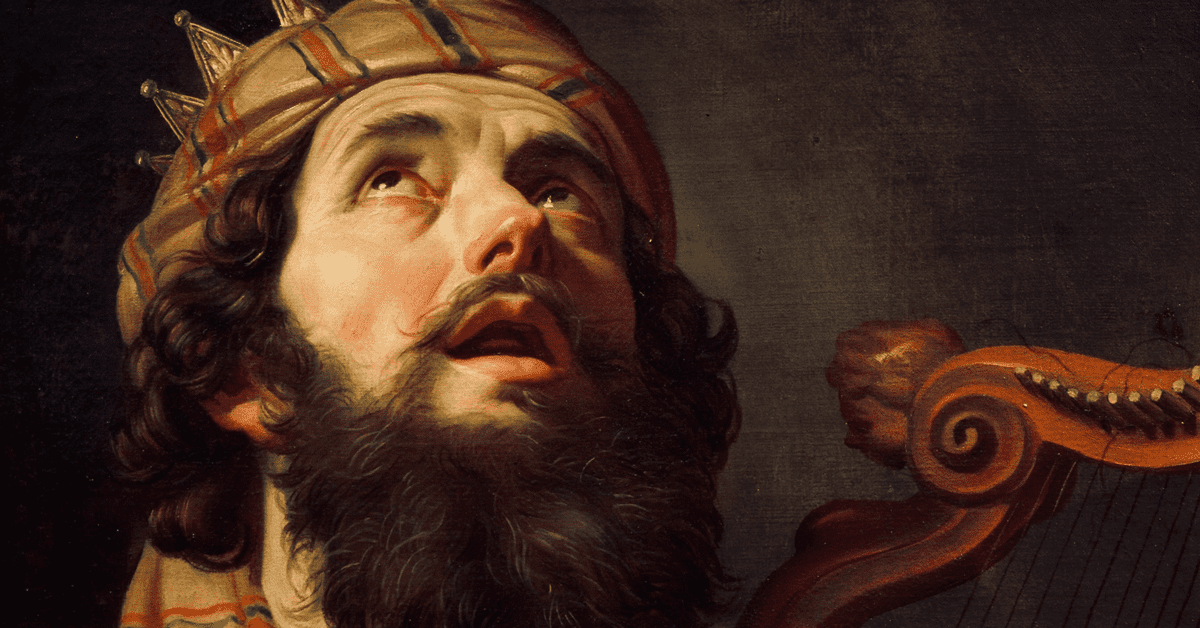
In this excerpt from Psalms: Evangelical Biblical Theology Commentary, James M. Hamilton Jr. examines the biblical evidence for the authorship of the psalms and presents his own hypothesis about how the whole book of Psalms came to be.
Within the Old Testament itself we find evidence that the superscriptions were interpreted as indicating authorship. The Chronicler writes, “Then King Hezekiah and the officials told the Levites to sing praise to the Lord in the words of David and of the seer Asaph” (2 Chr 29:30, CSB). This verse seems to indicate that the Levites were instructed to employ psalms of David and Asaph as they sang praise to Yahweh. Along these lines, 2 Sam 22 attributes what amounts to Ps 18 to David (2 Sam 22:1–51). The author of Chronicles likewise recounts how David appointed the Levites over the service of song at Yahweh’s house (1 Chr 6:31 [MT 6:16]; see also 15:16), and that he gave parts of what we know as Pss 105, 96, and 106 to Asaph to sing to Yahweh (1 Chr 16:7–36).
The author of Samuel further presents David referring to himself as “the sweet psalmist of Israel” (2 Sam 23:1), and Amos 6:5 refers to people who “like David devise for themselves instruments of song,” indicating that David invented some musical instruments. These Old Testament authors viewed David as a psalm-writer.
Jesus understood the attribution of a psalm to David to mean that David himself wrote that psalm (see, e.g., Mark 12:35–37 and parallels). Note that in context the argument Jesus makes turns on Davidic authorship. The New Testament writers also indicate that psalms attributed to David were in fact written by David, and in several instances they say that the Holy Spirit spoke through David (see, e.g., Acts 1:16; 2:25; 2:34; Rom 4:6; 11:9). In some cases a biblical author will attribute a psalm to David even when there is no superscription, as Luke does with Ps 2 in Acts 4:25. The author of Hebrews does the same with Ps 95 in Heb 4:7. Because I understand Luke and the author of Hebrews to be inspired by the Holy Spirit and therefore inerrant, I think this means that David wrote Pss 2 and 95.
In my view, biblical theology is the attempt to understand and embrace the interpretive perspective of the biblical authors. I want to believe what the biblical authors believed. From the evidence presented above, it seems to me that Old Testament authors, Jesus, and authors of the New Testament believed that when authorship is attributed in the superscriptions of the psalms, the person to whom the psalm was ascribed did in fact write the psalm. As a follower of Jesus, I seek to believe what he believed about the Bible (see esp. Matt 4:4; 5:18; John 10:35). Jesus believed that David wrote the psalms attributed to him, and so do I.
The more time one spends reading modern critical scholarship, the less likely Davidic authorship of the Psalms seems. On the other hand, if the biblical texts themselves eclipse modern critical biblical scholarship in priority, one will likely agree with the authors of the Old and New Testaments—and the vast majority of the “democracy of the dead”—that the people to whom the psalms are attributed did in fact write them.
The Authorship and Design of the Psalter
At this point I want to introduce a hypothesis about (1) how the whole book of Psalms came to be and (2) how the strategy to communicate a unified message across a series of poems was accomplished.
To be clear, in agreement with many past and present, I am suggesting that the whole book of Psalms has been purposefully arranged so that the individual Psalms join together to tell a wider story in the way a collage of photographs can be arranged to portray a narrative development. The simplest hypothesis is that the narrative message of the Psalter was David’s own idea, and that he began the work of arranging the individual psalms. Later psalmists, having understood what David was doing, added to the project in ways that exposited, developed, enriched, and completed what he began.
Consider an illustration: I could arrange a set of snapshot photographs that depicted a narrative presentation and interpretation of my own life. My choice of photographs and their meaning would be obvious to anyone from the way that my physical growth would be evident from baby pictures to school photos to graduation and wedding photos then to pictures that would include my children and on from there. Photos of my coffin would have to be added by those who came after me, and as the years passed, other photographs that communicated the significance of different events and the era in general might be added as people who knew what the collage was about and shared my perspective on life and its meaning gained historical perspective. In the kind of presentation I am describing, the narrative development would be impressionistic and interpretive. I might put things out of strict historical sequence in order to make a certain point, and I might also employ labels or other devices to connect my experience to the experience of others like myself.
The collage of the Psalter is not merely about David’s own life but God’s purposes in the world and how and where David fits in that wider project. If we allow the Scriptures to tell us their story, we know that David would have had access not only to the Torah but likely also Joshua, Judges, and Ruth. He further had access to prophets such as Samuel, Nathan, and Gad (1 Sam 16:13; 22:5; 2 Sam 7:4–17; 12:1–15, etc.; and cf. 1 Chr 29:29), who would have revealed God’s will to him and helped him understand the Scriptures. David himself, moreover, was a prophet (Acts 2:30), inspired by the Holy Spirit of God (2 Sam 23:2).
My proposal, then, is that David not only wrote the individual psalms attributed to him but also began the process of setting them in order. Earlier Scripture would have informed not only his understanding of Israel’s past but of his own life and (because passages like Lev 26 and Deut 28–32 prophesy Israel’s future) the future of God’s people. The trajectory set by David would have been understood by those who followed him not only in time but in perspective. Those who, like David, were enculturated by the Scriptures, those who understood both what David had written and the significance of David in God’s purposes, who like him were not only poets but inspired by the Holy Spirit, saw what David had initiated, understood it, and complemented it with the psalms that God prompted them to write. On this understanding, those who wrote and added psalms to the broader project were complementing and contributing to the work of creative genius inaugurated by the sweet psalmist of Israel. This kind of process would naturally lead to the whole being mainly associated with David, just as the work of some great painter or sculptor is associated with the master himself, even if his apprentices and associates later added touch-ups and highlights.
The symbolic universe in which David and the other Spirit-inspired psalmists operated would have been derived from the Scriptures, which likely would have been memorized (Deut 6:6–7), and which served to enculturate, educate, and elucidate those who knew them. The Bible was written to have world-shaping, mind-building, life-determining impact. When we read the Bible sympathetically, we see a natural development from the earlier to the later parts of Scripture. In this commentary I pursue that kind of sympathetic reading of the Psalms, assuming that the inspiration of the Holy Spirit ensured that later biblical authors correctly interpreted earlier biblical authors whose message they developed and clarified.
This post is adapted from Psalms: Evangelical Biblical Theology Commentary by James M. Hamilton Jr. (Lexham Press, 2021).
The Evangelical Biblical Theology Commentary series is on sale for 60% off through the end of March.
